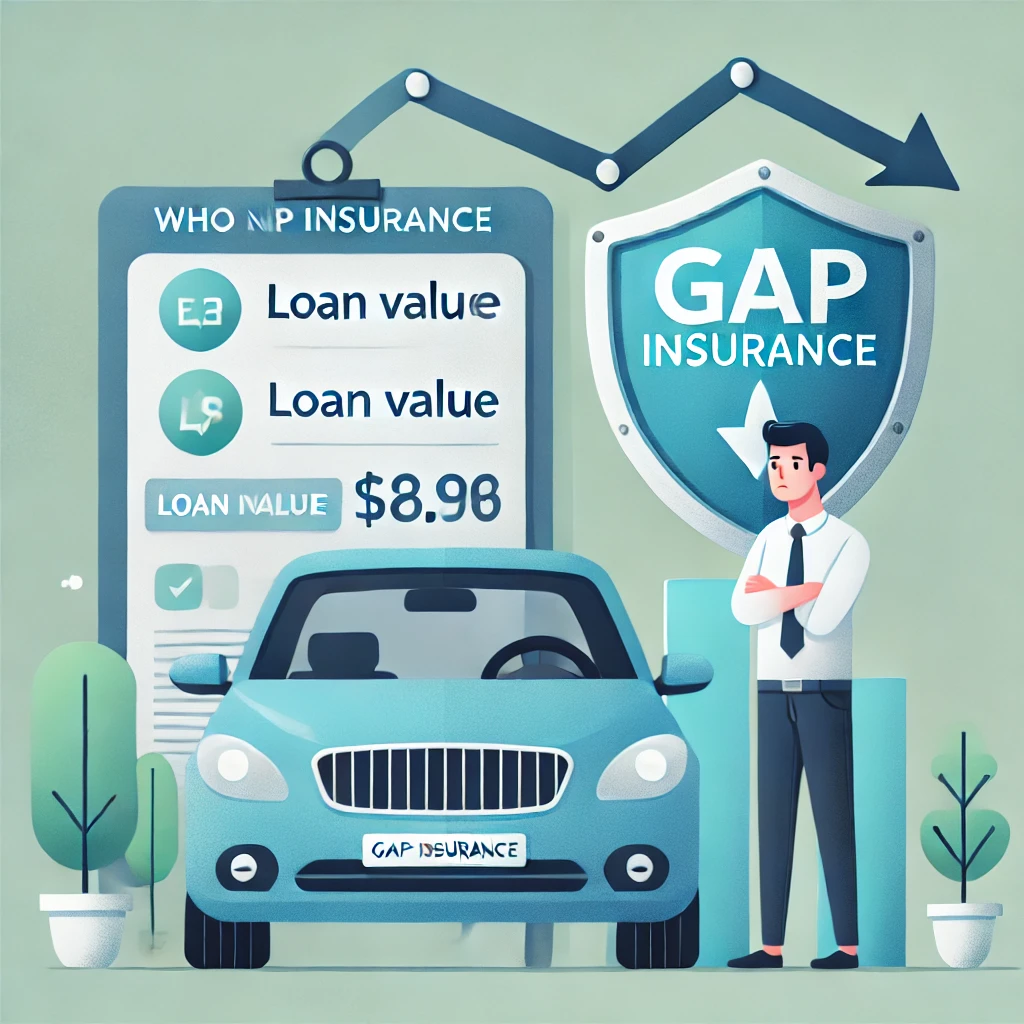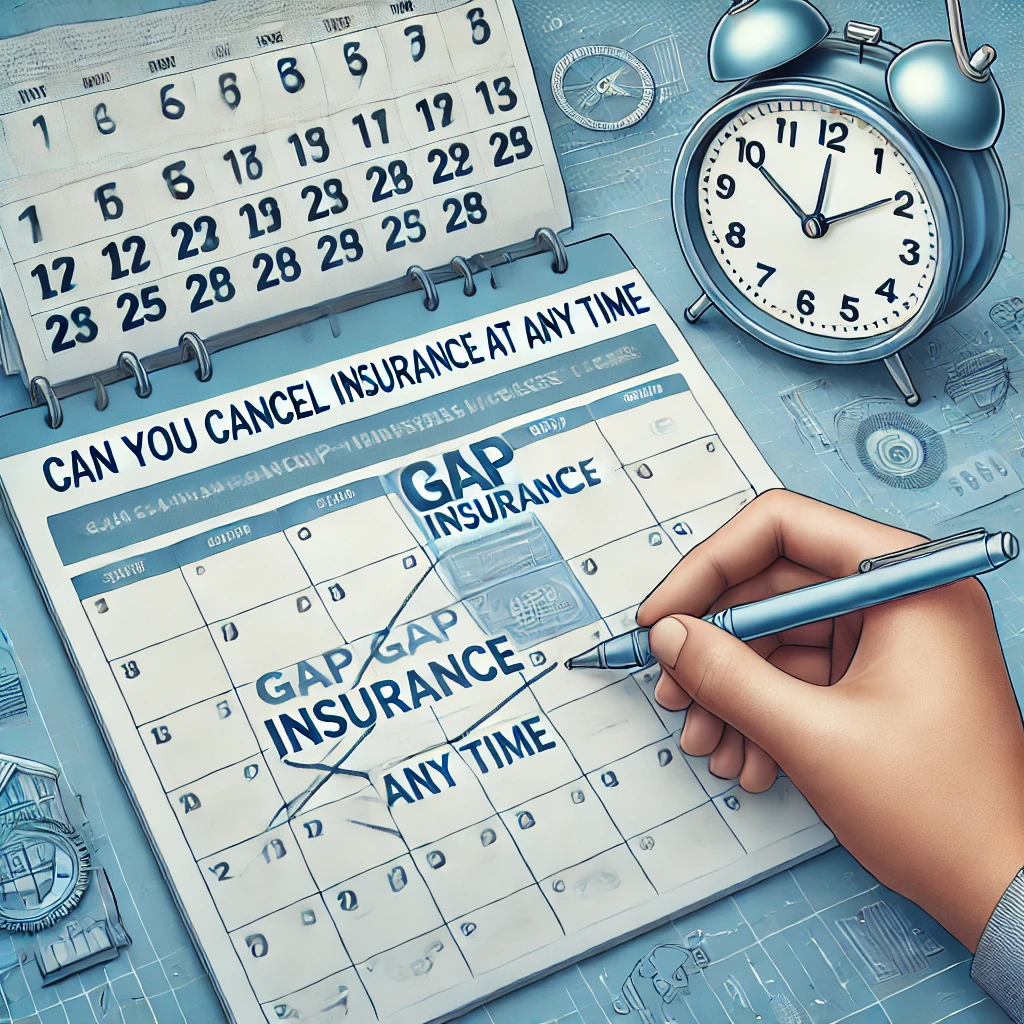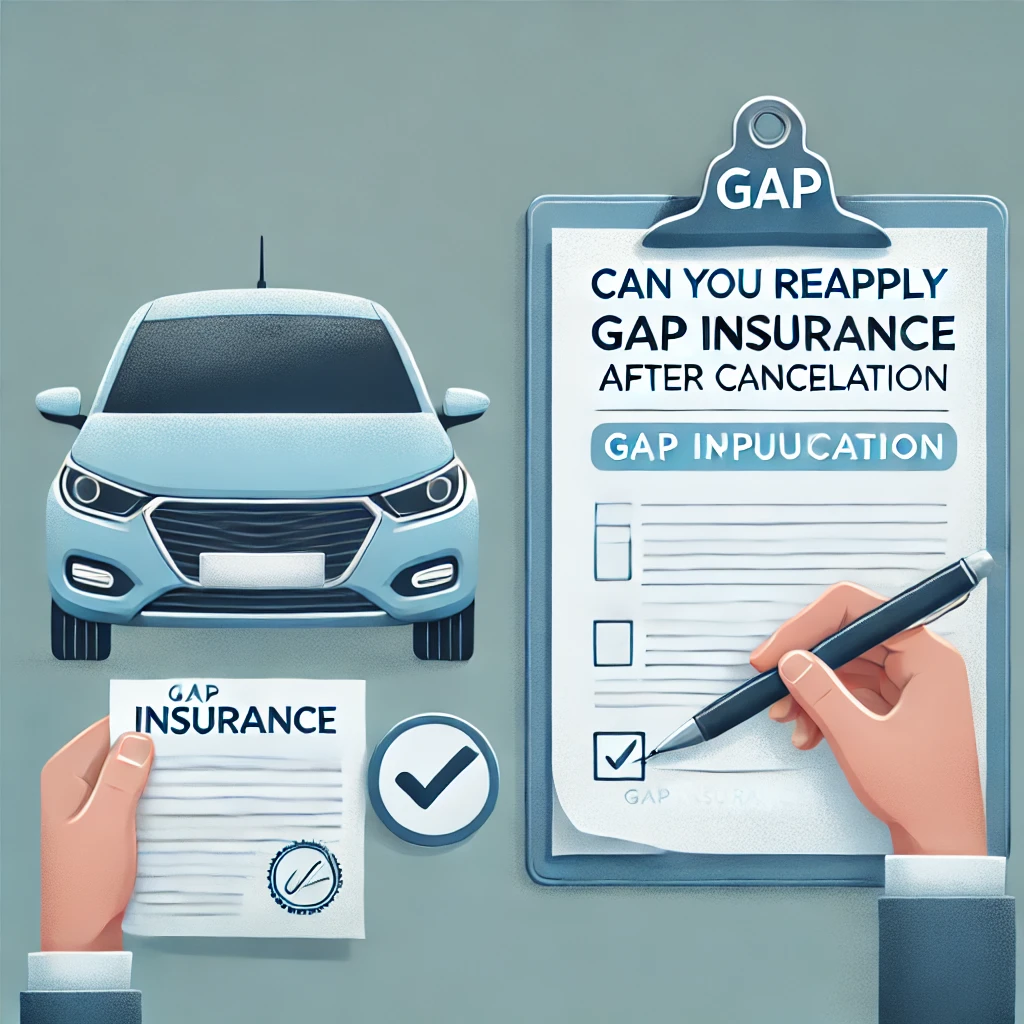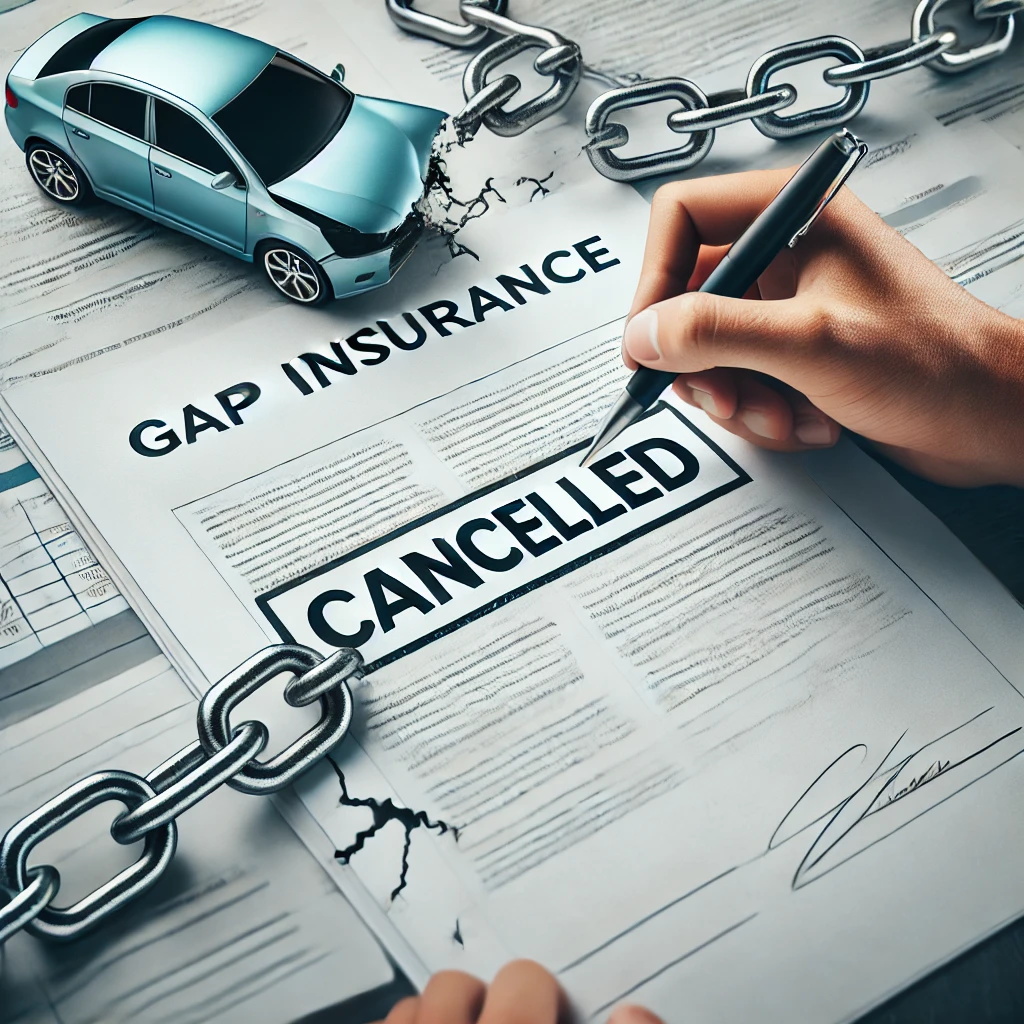Can You Cancel Gap Insurance?
Gap insurance is a kind of automobile insurance that pays the difference between the loan balance of your automobile and its ACV if it is a total loss or stolen. This insurance is often bought by drivers who borrow more on their cars than the value of cars; however things may change but insurance is still there. As you’ll see below, people may sometimes cancel gap insurance for various reasons, and we’ll explain the process and what comes after that as well.
What Is Gap Insurance?
Gap is an insurance product that covers owners of cars against the cost of losing more money on their car than their worth on the market. This ‘’gap’’ is usually present in the initial periods of a loan or a lease particularly on assets such as motor vehicles that decline rapidly.
Who Needs Gap Insurance?

Gap insurance is particularly beneficial for:
- Drivers who financed more than 80% of their car’s value.
- People who leased their vehicles, as many leasing agreements require gap insurance.
- Car owners with long-term loans (five years or more), which makes it more likely that depreciation will outpace the loan balance.
How Gap Insurance Works:
In the event that your vehicle is deemed a total loss or stolen, your normal auto insurance only pays out the car’s ACV, which is computed based from present market value of the car, meaning to some, this is still lower than what they are yet to pay on their cars. This is where gap insurance comes in, to ensure that you do not pay for the difference. For instance, if your car is worth $20,000 you bought it at $25,000 and you are still paying for your loan, gap insurance will pay the $5,000 you are short.
Why Might You Want to Cancel Gap Insurance?
There are many situations that you might find yourself in that warrant cancellation of gap insurance. Knowing when gap insurance is not longer essential is essential for making the right decision.
1. Paying Off the Loan Early:
Some of the reasons include paying off a vehicle loan; an insurer may cancel this insurance because this policy pays out only if your car has been written off and the loan that you took to buy it is still not fully paid. Thus, there is no need for gap insurance; there is no longer a loan to protect: gap insurance elicits its usefulness when there is still a loan to be salvaged.
2. Refinancing Your Loan:
When refinancing your car loan, as is often the case, the terms of the loan differ, which could now wash out the difference between what you owe and the car’s value. If borrowers wish to take out an additional loan of, let’s say $5,000 and their car costs just $4,000, it is possible to drop the gap insurance.
3. Selling or Trading Your Car:
Since you are likely to sell the vehicle, there’s no possibility of incurring a loss that gap insurance is supposed to protect you from. This is one of the factors that make canceling the account gap insurance valid in this is another typical situation where it is possible to cancel the gap insurance.
4. Financial Considerations:
Canceling gap insurance is one of the methods which help to minimize the costs per month. It is also possible to eliminate the policy all together if eliminating the protection is the goal and the cost of eliminating it is less than the cost of other polices that are included in the program.
5. When Canceling Might Be a Bad Idea:
It is also good to consider your financialstatus before going for the cancellation. For instance, if you have positive equity less than the car’s worth, but it depreciates rapidly, it is safer to consider keeping the gap insurance.
Can You Cancel Gap Insurance at Any Time?

Yes, in most circumstances, gap insurance can be canceled at any time; however, please find below a few caveats that are unique to each company and policy.
Policies on Cancellation:
Every insurance company and majority of the lenders offer an option on their policies, which allow gap insurance to be canceled at any of these periods. However, information concerning canceling the subscription and being eligible for refunds may differ. It is always important to read the small print in insurance policies in regard to cancellations and terminations.
Terms & Conditions by Providers:
The measures vary from one insurance company to another depending on the terms and conditions of each insurance company. Some polices will allow for the cancellation to take effect immediately whilst other polices may require the policy holder to keep the policy for a set period say one year before they can cancel it.
- Direct from Dealer or Lender: If you purchased gap insurance through your car dealership or lender, they may require that you cancel the policy through them rather than directly with the insurance company.
- Through Your Auto Insurer: If your gap insurance was added as part of your comprehensive or collision coverage with an auto insurance provider, you can usually cancel it by contacting the insurer.
How to Check Your Policy for Cancellation Rules:
- Read the Contract: Review your gap insurance contract carefully to understand cancellation policies.
- Contact Your Provider: If you’re unsure about the rules, contact your gap insurance provider or dealership for clarity.
- Look for Fees: Some providers may charge a cancellation fee, while others may allow you to cancel without any penalties.
Steps to Cancel Gap Insurance

In most cases, canceling gap insurance is not complicated, but it still is recommended to do it correctly.
Contacting Your Provider
First, you should reach out to the seller of the gap insurance policy, which may be either an insurance company, dealer or the lender that sold you the policy. Many will have a customer service number or website where this process of cancellation can be started.
- Call Customer Support: Get in touch with your provider’s customer support to request cancellation.
- Email or Online Request: Some companies allow you to cancel via email or through an online platform.
What Information You Need
When canceling your gap insurance, have the following information ready:
- Policy Number: Ensure you have your gap insurance policy number handy.
- Vehicle Information: Be ready to provide your car’s details, including the make, model, year, and VIN (Vehicle Identification Number).
- Loan Information: You may also need to provide details about your loan, including the loan balance and lender’s contact information.
Dealing with Paperwork and Documentation
In some cases, you might be asked to submit documents such as:
- Proof of loan payoff or refinancing.
- A copy of your vehicle’s sale or trade-in paperwork if you no longer own the car.
Always confirm with your provider what documentation is required to complete the cancellation process.
Can You Get a Refund for Gap Insurance?
You can get a refund for canceling the gap insurance based on the terms of use of policy and the time of having it. Places where refunds can be expected and procedure of its computation must be learned as well.
Prorated Refunds
Majority of gap insurance companies will render partial refunds on the basis of proportionate quantums, which will entitle you to a refund for the remaining period that the policy will not be utilized. For instance, if you decide to cancel gap insurance after a year, you will be offered the balance of the year in refund. The actual sum of money to be refunded varies with the proportion of time remaining to the policy’s term and the policy provider’s refund policy.
Example of a prorated refund:
- If you purchased a gap insurance policy for $600 for a three-year term and cancel after 18 months, you could receive a refund for the remaining 18 months of coverage. In this case, you would get back approximately $300, assuming no cancellation fees apply.
When You’re Not Entitled to a Refund
In certain situations, you might not receive a refund after canceling gap insurance. For instance:
- Gap Insurance Rolled Into a Loan: If the cost of your gap insurance was included in your car loan, any refund would typically be applied toward the outstanding balance of your loan rather than sent to you directly.
- Non-Refundable Policies: Some gap insurance policies might not offer refunds after a certain period (e.g., after the first year), so it’s important to review your policy carefully.
Case Study Example:
Imagine a person who cancels his gap insurance after half a year after the purchase. They bought the policy for $500 for a period of five years but the couple cancels in the middle of the year to have their car refinanced and don’t need the policy any longer. Although they had asked for a 60-month policy and only used six months of it, they could receive only $450 in a refund.
What Happens After You Cancel Gap Insurance?

When you cancel gap insurance it is good to know what might happen to you and the dangers you are likely to encounter.
Financial Risks of Canceling Gap Insurance
Lacking gap insurance if your car gets stolen, or it’s a total loss, the insurance company will pay less than the balance on your loan, and you are expected to make up the difference. This could put much pressure on your wallet if you owe way over your car’s ACV, mostly in a circumstance you borrowed a lot of cash.
For instance, if you have outstanding loan of $18000 and the car’s ACV is only $14000, then in a case where the car is writtent off, you will be required to pay the balance of $4000.
How to Protect Yourself Post-Cancellation
If you decide to cancel gap insurance, here are a few ways to protect yourself financially:
- Evaluate Your Loan Balance vs. Car Value: Before canceling, ensure the remaining balance on your loan is close to or less than your car’s current market value. This minimizes your risk.
- Consider Other Types of Insurance: Some comprehensive insurance policies offer similar coverage, such as Loan/Lease Payoff Coverage, which may provide partial protection.
- Save an Emergency Fund: If you decide to cancel gap insurance, consider setting aside funds to cover any potential gap between your loan and the car’s value in case of a total loss.
Is It Worth It to Cancel Gap Insurance?
Choosing whether to cancel gap insurance is contingent to the existing economic scenario/position and the current balance you might have over your car. Below I present a list that needs to be met in order to decide if canceling gap insurance is the right move for you.
Pros of Canceling Gap Insurance:
- Cost Savings: Canceling gap insurance can help reduce monthly expenses if you no longer need the coverage.
- Loan Paid Off or Close to Payoff: If you’ve paid off your car loan or only owe a small amount that’s less than or equal to your vehicle’s current value, gap insurance becomes unnecessary.
- No Financial Risk: If your vehicle’s actual cash value (ACV) is higher than or equal to your remaining loan balance, you wouldn’t need gap insurance to cover any difference in the event of a total loss.
Cons of Canceling Gap Insurance:
- Financial Risk If You Owe More Than the Car’s Value: Canceling gap insurance when your loan balance is still higher than your vehicle’s worth can expose you to a significant financial risk if your car is totaled or stolen. Without gap insurance, you would have to pay the difference out-of-pocket.
- Rapid Depreciation: Vehicles can depreciate quickly, especially in the first few years. If your car loses value faster than you can pay off your loan, canceling gap insurance might leave you vulnerable.
When Keeping Gap Insurance Is a Good Idea:
- Long Loan Terms: If you’re still in the early stages of a long-term loan, keeping gap insurance can protect you from financial losses due to rapid depreciation.
- Low Down Payment: If you initially put down a small amount (or nothing at all) on your car, the loan balance is likely higher than the vehicle’s value, making gap insurance valuable for protecting against loss.
Example Scenarios:
- Scenario 1: Car Loan Nearly Paid Off: Sarah has a car loan with a remaining balance of $3,000, and her car is worth $4,500. Since she owes less than the car’s value, canceling gap insurance is a low-risk option for her.
- Scenario 2: High Loan-to-Value Ratio: John still owes $20,000 on his car loan, but the car’s current value is only $16,000. Canceling gap insurance would put him at risk of having to cover the $4,000 difference if the car is totaled. In his case, keeping the coverage would be a safer financial decision.
Can You Reapply for Gap Insurance After Cancellation?

If this is so, you may be surprised to realize that you require gap insurance once more after canceling it. But, there are a certain condition and/or restriction regarding its reapplication.
When Can You Reapply for Gap Insurance?
You can typically re-purchase gap insurance as long as you have an active car loan and the vehicle meets the eligibility requirements. Some insurers may have specific conditions for reapplying, such as:
- The loan must be within a certain amount of time from the original purchase (e.g., within the first few years).
- The vehicle must be relatively new, as gap insurance is often limited to newer cars.
Limitations on Older Vehicles:
If your car is old or has depreciated to below your current policy, then your car will not be eligible for gap insurance. In general, most gap insurance policies are for new or ‘newer’ cars, so if you cancel and apply again later, you won’t be able to if your car doesn’t fit the description anymore.
Things to Consider Before Reapplying:
- Cost: The cost of reapplying for gap insurance on a vehicle you’ve owned for some time may be higher than when you initially purchased it.
- Loan-to-Value Ratio: Before considering reapplying, check your current loan balance and the vehicle’s value. If they are close, gap insurance might no longer be necessary.
Frequently Asked Questions (FAQs)
Can You Cancel Gap Insurance After Refinancing?
Yes, after refinancing your car loan, you can cancel your gap insurance. Refinancing typically lowers your loan balance, which may eliminate the need for gap insurance. Always check your new loan terms to confirm whether gap insurance is still required.
Can You Transfer Gap Insurance to a New Vehicle?
In most cases, gap insurance is tied to the specific vehicle for which it was purchased and cannot be transferred. If you sell or trade in your car, you will need to purchase a new gap insurance policy for the new vehicle.
Do You Need Gap Insurance If You Own Your Car Outright?
No, gap insurance is unnecessary if you own your car outright because there is no remaining loan balance to protect. Gap insurance is specifically designed to cover the difference between the car’s value and the remaining loan balance, which is irrelevant once the loan is paid off.
Is Gap Insurance Refundable?
Yes, in most cases, gap insurance is refundable if you cancel the policy before its term ends. Refunds are typically prorated, meaning you’ll get back a portion of what you paid based on how much time is left in the policy.
Conclusion
Canceling gap insurance can be a wise financial decision, especially if you’ve paid off your loan or your car’s value is close to or greater than the remaining loan balance. However, it’s important to carefully evaluate your current financial situation and the potential risks of canceling. If your loan balance is still higher than the car’s value, maintaining gap insurance may be the safer option. Always review your policy’s terms and conditions before making any changes, and consider speaking with your insurance provider to ensure you make the best decision for your financial future.
References:



